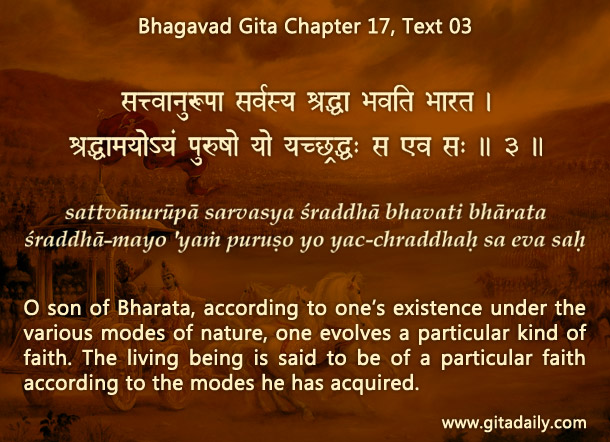Atheists often blame religion and God for the evil of terrorism.
But their blame game suffers from a fundamental blunder – a simplistic equalization of radically different conceptions of God. For example, the word ‘medicine’ conveys many different things in different cultures, ranging from the work of competent professionals to that of swindling quacks. To impose on all medical professionals the bias acquired from bad experience with quacks is erroneous.
A similar dynamic applies to God. The Bhagavad-gita (17.03) indicates that our faith reflects what we are and shapes what we will become. So, though God is one, people’s conceptions of God are many, being determined by who they are. They may claim that their conception comes from scripture, but they selectively extract from scripture a conception that acts as a serviceable tool for their self-centered ends. For people who delight in brute force – people who in the Gita’s parlance are in the mode of ignorance – “God” becomes a mace for pounding to subordination, if not annihilation, anyone who dares to disagree with them. Predictably enough, such people are driven by a conception of paradise as an arena filled with virgins waiting for them.
In contrast, the God of transcendentalists is a God who empowers them to overcome their self-centered urges. Thus, transcendentalists go beyond the lure of the matter that terrorists crave to control and enjoy. The transcendentalists’ God inspires them to lead a life of selfless service and spiritual love, centered on humility and tolerance. This conception of God as the reciprocator of pure love is the zenith of the conceptions of God found in scripture.
To uproot terrorism, we need not the simplistic rejection of God advocated by atheists, but the systematic education provided by authentic spiritualists of who God really is and how he can be actually attained.

Explanation of article:
Podcast


Leave A Comment